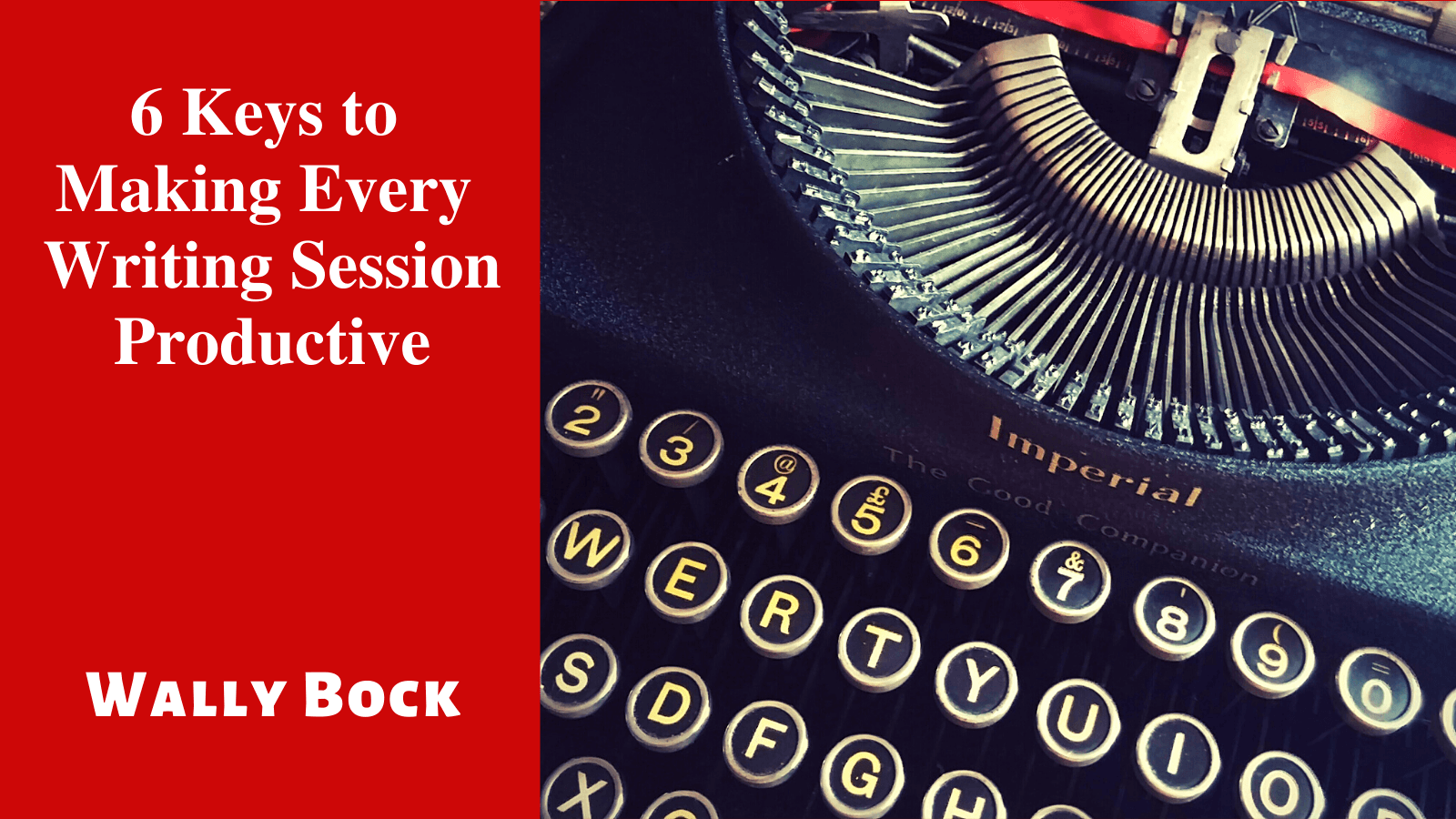One of the biggest challenges my book writing clients face is carving out time to write. Writing time is precious when you’ve already got a jampacked life. My clients don’t want to waste a minute of the writing time they have. Neither should you.
Great books take a year or more to write and maintaining productivity is a challenge. Solid repeatable work routines make for productive work. Here are six keys to making every one of your writing sessions productive.
Schedule Your Session
Scheduling your writing session when you plan your week helps assure you get enough time to do productive work. I suggest a block of at least 2 hours.
Schedule your writing sessions for the same time and place every time if you can. That helps train your brain to know when it’s time to write.
Perform a Starting Ritual
The starting ritual helps you transition from normal time to sacred writing time. Develop a routine you can do the same way in every session. That helps train your brain, too.
Every writer’s starting ritual is unique. One client made sure to wear her father’s ring on a chain around her neck. Some clients meditate. Many clients have a playlist of music that helps them write. Others exercise or read the last few pages of work they’ve done. Experiment to find out what works for you.
Even though every writer’s starting ritual is unique, most writers include things that block distractions.
Block and Neutralize Distractions
Distractions are the devil. Distractions can turn your writing session into a complete waste of time.
You can’t eliminate distractions, but you can take steps to block and neutralize them. Turn off your phone. Put it in another room if possible. Close your door. Make these steps part of your starting ritual.
Many distractions don’t come from the outside. We often distract ourselves when we’re not sure what to do next.
Dive Right In and Start Writing
If you know what you’re going to write next, you can dive right in and start writing. That will give you the momentum to make your session productive. That means you need to decide ahead of time where you’ll start.
I recommend that you do your planning and research in separate work sessions. Keep the writing sessions for writing and nothing else.
Follow the Raymond Chandler Rule
In 1949, journalist Alex Barris sent Raymond Chandler interview questions about his writing habits. Chandler wrote about the need for a designated writing session. Then he said this.
“He doesn’t have to write, and if he doesn’t feel like it, he shouldn’t try. He can look out of the window or stand on his head or writhe on the floor. But he is not to do any other positive thing, not read, write letters, glance at magazines, or write checks. Write or nothing.”
Perform and End-Session Ritual
The purpose of an end-session ritual is to take you out of sacred writing space and back to the world we call “real life.” The key is to stop while you still have momentum and decide what to write in your next session. As far as I know, Ernest Hemingway is the original source of this bit of wisdom. Here’s how he put it in an article for Esquire in 1935.
“The best way is always to stop when you are going good and when you know what will happen next. If you do that every day when you are writing a novel you will never be stuck.”
Mark Bowden made the same point in a short piece he wrote for Publishers Weekly in March 2019. Bowden said John Barth even suggested you stop in the middle of a sentence. That way you’ll know exactly where to pick up in the next session.
If you follow this advice, you’ll always be able to dive right in and start writing at the beginning of your next writing session.
Takeaways
Schedule your session.
Perform a starting ritual.
Block and neutralize distractions
Dive right in and start writing.
Follow the Raymond Chandler rule.
Perform an end-session ritual.
